
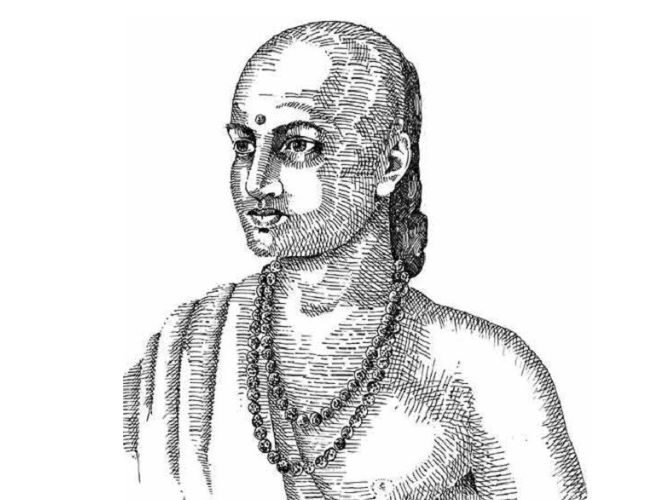
This event is over. See upcoming events
7:30 AM - 3:30 PM (IST)
Contribution of Indian Knowledge Traditions to the World
SPEAKERS
-
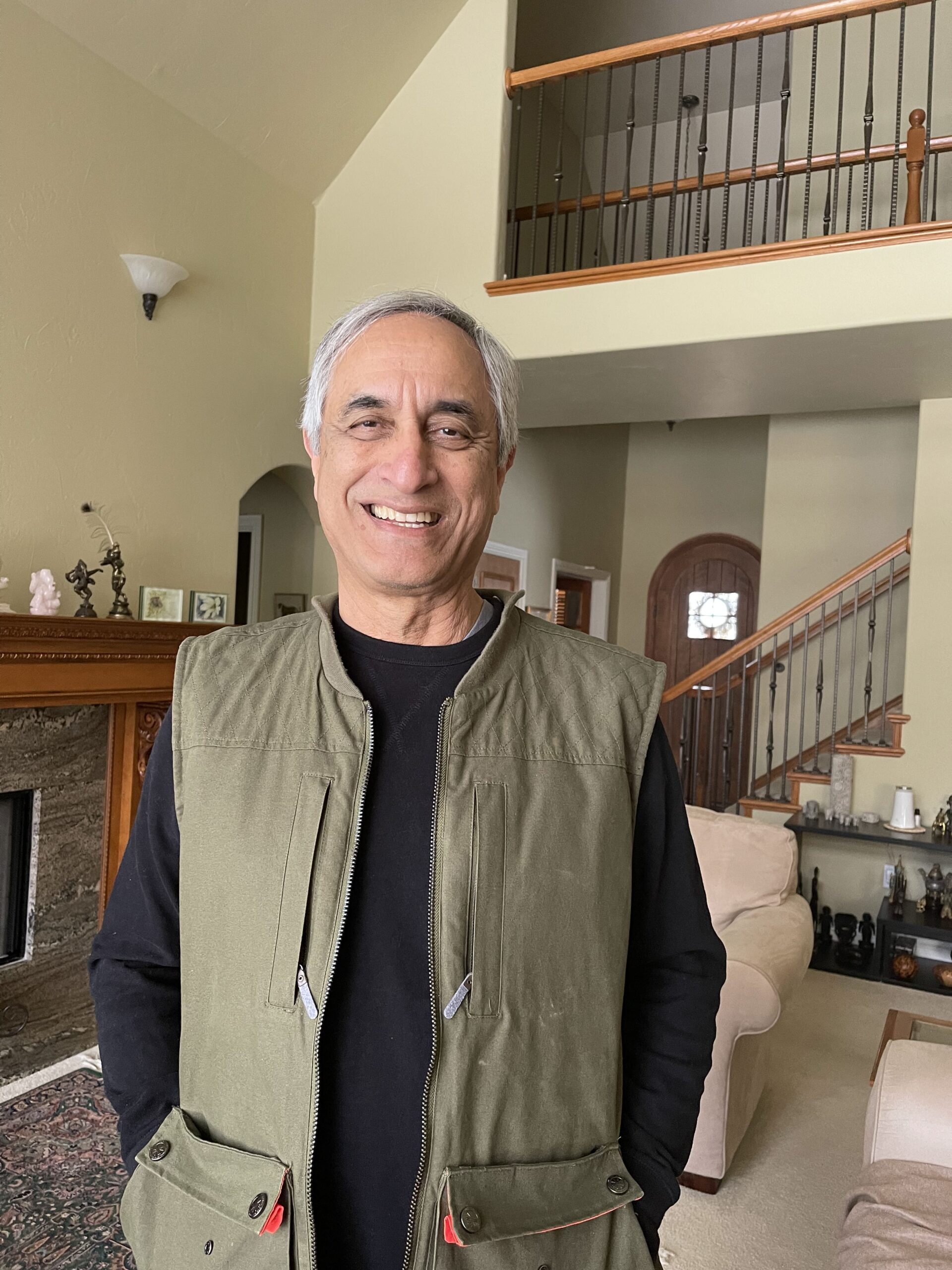
Dr. Subhash Kak
Regents Professor at Oklahoma State University in Stillwater
-
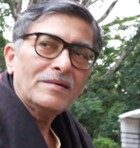
Dr. C K Raju
Professor
-
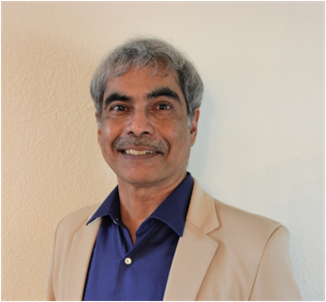
Dr. Raj Vedam
Visiting Faculty, Hindu University of America
-
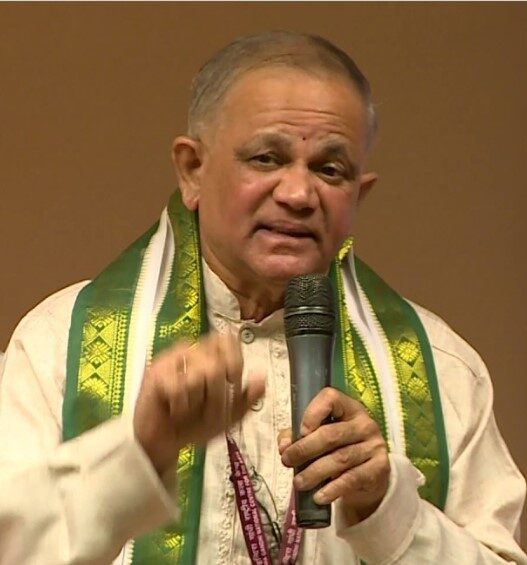
Dr. Korada Subrahmanyam
Sanskrit Grammarian & Scholar, Professor (Retd.)
-
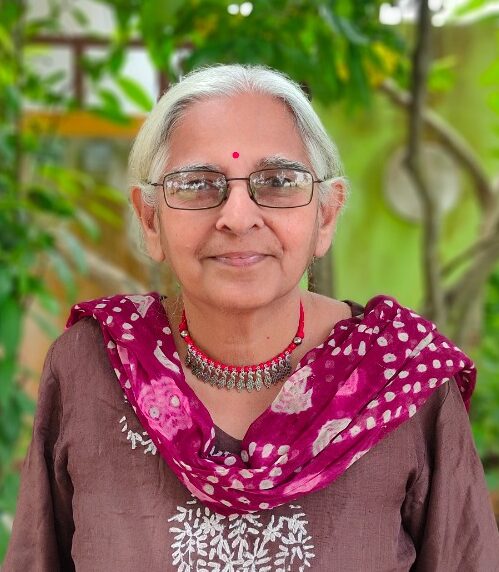
Dr. Padmini Balaram
Professor, Sasi Creative Institute of Design & Former Professor of Design & HOD, Silpa-Sadana, Visva-Bharati, Santiniketan
-
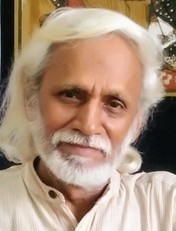
Dr. Singanapalli Balaram
Designer, Author & Professor
-

Dr. Bindu J Vyas
Educator, Lifestyle Management System (Mind-Body Medicine) & Director Indian Circle for Caring Inc., USA (ICC)
-
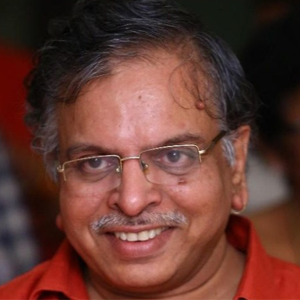
Dr. Nagaraj Paturi
Senior Director & Chief Curator, INDICA
-
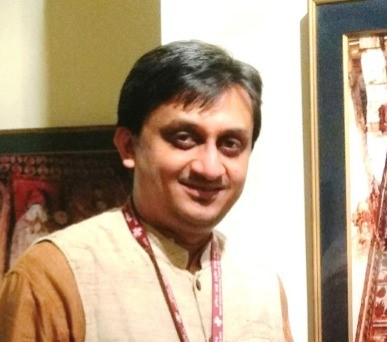
Megh Kalyanasundaram
Director-Special Projects, INDICA
Categories:
Contact
Human beings have been creating and passing on information to future generations for several millennia. In the creation, preservation, and propagation of information, some have seen traditions of knowledge by geography, way of life, religion, language, and more. One such geography is the Indian subcontinent, roughly coterminous with what has been described as Bhāratavarṣa in no less than 63 verses[1] of the critical edition of the Indian epic the Mahābhārata.[2] The Indian subcontinent has been the birthplace of many knowledge traditions, including Vedic, Śramaṇa (which includes Jaina and Bauddha), and others that have survived several millennia into the present. Some of these traditions share fundamental ideas but also disagree about other ideas, and yet coexist largely peacefully in contemporary India. An early pre-Buddhist listing of some of the fields of knowledge known in the Indian subcontinent well before the ‘common era’ is found in the Chāndogya Upaniṣad VII.1.2:
 [3]
[3]
“…Rig-Veda, the Yajur-Veda, the Sama-Veda, the Atharva-Veda as the fourth Veda, the epics (Puranas) and ancient lore (Itihasa) as the fifth, the Veda of the Vedas (i.e. grammar), the rules of the sacrifices by which the Manes are gratified, the science of numbers, the science of portents, the science of time, logic, ethics, etymology, Brahma-vidya (i.e. the science of pronunciation, ceremonials, prosody, etc.), the science of elemental spirits, the science of weapons, astronomy, the science of serpents and the fine arts. All this I know, venerable Sir.”[4]
By at least around the middle of the first millennium of the ‘common era’, texts indigenous to the Indian subcontinent attested words that can be seen as terms for systems of knowledge that encompassed several fields. Two of such attested systems of knowledge are the Caturdaśa [(14) {veda (4), vedāṅga (6), upāṅga(4)}] and the Aṣṭādaśa [(18) {veda (4), vedāṅga (6), upāṅga (4), upaveda (4)}] Vidyāsthānaṃ-s[5], found in Yājñavalkya Smṛti (1.3) and Viṣṇupurāṇa (3.6.28-29) respectively. Not surprisingly, Jessica Frazier has seen a high degree of formalization in the methods of Vedic learning and has noticed its role in inspiring what she has called “effectively India’s first universities”:
“The highly formalized methods of Vedic learning helped to inspire the formation of large teaching centres – effectively India’s first universities. Taxila, Nālandā and Vikramaśīla are the most famous of these, the latter two surviving until the thirteenth century. Such universities taught not only the Vedic texts and the ritual that complemented them, but also the various theoretical disciplines that provided a foundation for these two pillars, the Vedāngas, or sciences (literally ‘limbs’ or ‘supports’), of the Vedas. These included linguistics, reasoning (hetu, literally, ‘causes’), medicine, law, astronomy and city-planning. Śāstras attempted to collect and represent distinct fields of knowledge, creating a cultural template of classic ‘disciplines’ such as law and ethics (dharma-śāstra), economics and governance (artha-śāstra), drama and aesthetics (nāṭya-śāstra), religious architecture (vāstu-śāstra) and of course grammar. In both the Sūtras and more explanatory Śāstras, diverse views were considered and assimilated to a single relatively coherent system, systematically explained. Not unlike the first Islamic universities that developed in North Africa and those that grew from them in Christian Europe, these universities saw a general understanding of the world as a necessary context for religious study and salvation.” [Frazier, 2011, p. 34] {Emphasis added}
Well developed knowledge centres in the Indian subcontinent attracted seekers (Yijing and Xuanzang amongst others) from different parts of the world across millennia.
 [6]
[6]
The succession of sages who played a significant role in the creation, preservation, and propagation of knowledge traditions in the Indian subcontinent had been singled out for effusive praise and also specified as the raison d’être for naming the land itself as Yindu by the Chinese, a name that continues till date in China:
Before the oldest amongst universities still extant in Europe (Bologna in Italy) was founded, Said Al-Andalusi (1029-1070 CE), in his book Tabaqāt al-ʼUmam (The Categories of Nations), had written what has been translated as the following about Indians, their wisdom and fairness, and their proficiency in some branches of knowledge seen earlier, and more:
“The first nation [to have cultivated science] is India. This is a powerful nation having a large population, and a rich kingdom [possession]. India is known for the wisdom of its people. Over many centuries, all the kings of the past have recognized the ability of the Indians in all the branches of knowledge. … The Indians, as known to all nations for many centuries, are the metal [essence)] of wisdom, the source of fairness and objectivity. They are peoples of sublime pensiveness, universal apologues, and useful and rare inventions. … To their credit, the Indians have made great strides in the study of numbers and of geometry. They have acquired immense information and reached the zenith in their knowledge of the movements of the stars [astronomy] and the secrets of the skies [astrology] as well as other mathematical studies. After all that, they have surpassed all the other peoples in their knowledge of medical science and the strengths of various drugs, the characteristics of compounds and the peculiarities of substances.Their kings are known for their good moral principles, their wise decisions, and their perfect methods of exercising authority. … That which has reached us from the discoveries of their clear thinking and the marvels of their inventions is [the game of] chess. The Indians have, in the construction of its cells, its double numbers, its symbols and secrets, reached the forefront of knowledge.”[7] {Emphasis added}
While there is solid evidence that some knowledge traditions of the Indian subcontinent continued to flourish in some parts of the Indian subcontinent in the second millennium (the Kerala school of Mathematics[8] for example), and while there is also detailed evidence of the existence of “traditional institutions” (Dharampal, 2000, Vol III, p. 17) based on indigenous traditional knowledge in some parts of India until as late as the beginning of the 19th century, it would perhaps be an understatement to say that traditional Indian knowledge traditions, practices, and systems met multiple near-fatal blows in the second millennia, be it the grotesque, in some ways “lethal”[9] physical destruction (think Nālandā Mahāvihāra in the 13th century) or the more sophisticated yet equally (if not more) damaging mental colonisation courtesy the British educational policies and other depredations in India.[10]
That the formal Government of India Ministry-of-Education (MoE) led recovery from these blows has been excruciatingly slow can be gauged from the fact that it was not until 2012, 65 years after the British left India in 1947, that the Central Board of Secondary Education (CBSE) decided to finally introduce a course at the secondary education level, still only an elective though, focused singularly on Indian knowledge traditions and practices titled ‘Knowledge Traditions and Practices of India‘ for classes XI and XII. By 2015[11], two volumes[12] were published for this course that included 21 modules: Astronomy (Vol I 1-30), Chemistry (Vol I 31-58), Indian Literatures (Vol I 59-132), Indian Philosophical Systems (Vol I 133-162), Indian Traditional Knowledge on Environment Conservation (Vol I 163-188), Life Sciences 1-3 {Ayurveda, The Historical Evolution of Medical Tradition in Ancient India, Plant and Animal Science in India} (Vol I 189-246), Mathematics in India (Vol I 247-286), Metallurgy in India (Vol I 287-316), Music in India (Vol I 317-342), Theater and Drama in India (Vol I 343-375), Agriculture (Vol II 1-24), Architecture (Vol II 25-83), Dance (Vol II 84-120), Education (Vol II 121-149), Ethics (Vol II 150-169), Martial Arts (Vol II 170-195), Language and Grammar (Vol II 196-228), Other Technologies – A Survey (Vol II 229-258), Painting (Vol II 259-288), Society State and Polity (Vol II 289-340), and Trade (Vol II 341-382)[13].
Amongst the most substantive MoE led/supported initiatives after 2015 include:
-
-
- Initiation of a semester course on Introduction to Indian Knowledge Systems (IKS) at IIT Gandhinagar in 2015-16. Their website shows a year-wise break up of this course starting from 2016 until 2022
- All India Council for Technical Education (AICTE)’s inclusion of “Essence of Indian Knowledge Tradition” (Section 8.4 in p. 123)[14] as a mandatory non-credit course in 2018
- The inclusion of section 4.6.9 titled Knowledge of India (pp. 98-99) in the draft of the National Education Policy released in 2019 which contained the terminology Indian Knowledge Systems four times in it[15]
- The confirmation of the inclusion of a section (4.27) on the Knowledge of India (p. 16) in the National Education Policy released in July 2020.[16]
““Knowledge of India” will include knowledge from ancient India and its contributions to modern India and its successes and challenges, and a clear sense of India’s future aspirations with regard to education, health, environment, etc. These elements will be incorporated in an accurate and scientific manner throughout the school curriculum wherever relevant; in particular, Indian Knowledge Systems, including tribal knowledge and indigenous and traditional ways of learning, will be covered and included in mathematics, astronomy, philosophy, yoga, architecture, medicine, agriculture, engineering, linguistics, literature, sports, games, as well as in governance, polity, conservation. An engaging course on Indian Knowledge Systems will also be available to students in secondary school as an elective Specific courses in tribal ethno-medicinal practices, forest management, traditional (organic) crop cultivation, natural farming, etc. will also be made available.Competitions may be held in schools for learning various topics and subjects through fun and indigenous games. Video documentaries on inspirational luminaries of India, ancient and modern, in science and beyond, will be shown at appropriate points throughout the school curriculum. Students will be encouraged to visit different States as part of cultural exchange programmes.” (p. 16) {Emphasis added}
- Establishment of The Indian Knowledge Systems (Bharatiya Gnana Parampara) Division of Ministry of Education (MoE) in Oct 2020
[17]
- Three Faculty Development Programs on Indian Knowledge Systems, one every year, starting Nov 2020 followed by one each in 2021 and 2022
[18]
- Release of the textbook Introduction to Indian Knowledge System – Concepts and Applications[19] in 2022. The Contents in Brief of the book are:
-
- Part 1: Indian Knowledge System – An Introduction
- Indian Knowledge System – An Overview
- The Vedic Corpus
- Philosophical Systems
- Wisdom through the Ages
- Part 2: Foundational Concepts for Science and Technology
- Linguistics
- Number System and Units of Measurement
- Knowledge Framework and Classification
- Part 3: Science, Engineering and Technology in IKS
- Mathematics
- Astronomy
- Engineering and Technology: Metals and Metalworking
- Engineering and Technology: Other Applications
- Town planning and Architecture
- Part 4: Humanities and Social Sciences in IKS
- Health, Wellness and Psychology
- Governance and Public Administration
- Part 1: Indian Knowledge System – An Introduction
-
- Establishment of multiple IKS centres and approval of new research proposals in 2022[20]
- University Grants Commission (UGC)’s Guidelines for Training of Faculty on Indian Knowledge Systems 2022 November[21]
-
While content about Indian Knowledge Traditions, Practices, and Systems are slowly returning to the mainstream education system in India (even as a non-elective mandatory course at the higher/secondary level still remains a desideratum), what many of these aforementioned efforts have attempted to do was to firstly rediscover, so to speak, traditional knowledge, and in some cases, demonstrate its contemporary relevance, both necessary and important vectors of activity.
Contribution of Indian Knowledge Traditions to the World, an in-person conference planned on June 15-16 (Thu, Fri) 2023 looks to go beyond the aforementioned vectors (of rediscovery and evaluation of contemporary relevance) to focus on a third: flow of traditional ideas indigenous to the Indian subcontinent from India to the rest of the world across time (from ancient to contemporary) and their impact[22]. New, previously unpublished research that can demonstrate originality in establishing indigeneity, tracing movement of ideas from the Indian subcontinent to any other part of the world, and foregrounding their contribution to any positive development there is welcome.
We invite abstracts of up to 500 words on or before the 31st of March 2023 (Fri) at namaste@indica.org.in. We will notify the authors of selected abstracts by 7th of April 2023 (Fri). A Zoom call with authors of selected abstracts will be organised on the 16th of April 2023 (Sun) at IST 1900 hrs for clarifications and logistics related updates. Full papers will be due by the 4th of June 2023 (Sun). Guidelines for paper include:
- Citation style: American Psychological Association, Seventh Edition (2020)
- Word limit: 3000 – 5000 words [brevity and originality appreciated]
- Times New Roman, Font size 12, 1.5 line spacing
Respondents are encouraged to articulate clearly, in the course of their paper, what research questions their paper is looking to address, why those questions merit attention, and what, in the author’s view, is new in their submission. We will prioritise papers with intriguing new insights and original research.
– Megh Kalyanasundaram
End Notes
[1] See verses 06010005 to 06010068 in Belvalkar, 1947, pp. 45-59 (reproduced in Kalyanasundaram, 2020c, pp. 6-8)
[2] https://dsal.uchicago.edu/reference/schwartzberg/pager.html?object=051 India as revealed in the Mahābhārata, Schwartzberg Atlas, v. , p. 14. Also see Map 1: Landscape in the Nāṭyaśāstra in Suresh and Kalyanasundaram, 2022, p.14
[3] pp. 392-393 in https://ia600803.us.archive.org/14/items/12SChandogyaUpanishadWithAnandGiriTikaStateCentralLibHyd/12-S_Chandogya%20Upanishad%20with%20Anand%20Giri%20Tika_StateCentralLibHyd.pdf. See Table 3 in Kalyanasundaram, 2020b, pp. 13-14 for comparison of 4 translations of (only) the verse (not commentary).
[4] https://upanishads.org.in/upanishads/11/7/1/2
[5] By the middle of the first millennium of the common era, the word vidyāsthānaṃ was already at least a millennia old courtesy its attestation in Yāska’s Nirukta. See Kalyanasundaram, 2020a, p. 21
[6] Encyclopedia of India-China Cultural Contacts Vol I, 2014, p. 124
[7] https://www.infinityfoundation.com/mandala/h_es/h_es_kumar_spain_frameset.htm
[8] https://link.springer.com/referenceworkentry/10.1007/978-1-4020-4425-0_8683 Kerala School of Astronomy and Mathematics
[9] See Lethal Assault On Learning [Singh, 2022, pp. 194-210]
[10] See The Curse of Colonialism [Singh, 2022, pp. 211-232]
[11] Between 1947 and 2015, some notable government led/supported initiatives related to some aspects of Indian Knowledge Traditions include:
- Sanskrit universities (esp. http://www.sanskrit.nic.in/) and organisations like Indira Gandhi National Centre for the Arts (IGNCA) https://ignca.gov.in/, Sangeet Natak Akademi (SNA) https://www.sangeetnatak.gov.in/ (amongst others)
- Indian National Science Academy’s Indian Journal of History of Science https://insa.nic.in/UI/journaldetails.aspx?AID=Mw== since 1965
- National Mission for Manuscripts https://www.namami.gov.in/history in 2003
- Cell for Indian Science and Technology in Sanskrit (CISTS) at IIT Bombay https://www.hss.iitb.ac.in/en/unit-category/cists
- Vedic Heritage Portal https://vedicheritage.gov.in/
[12] http://cbseacademic.nic.in/web_material/Curriculum17/SrSecondary/36%20Knowledge%20traditions%20and%20%20practices%20of%20India.pdf Vol 1 of a textbook for CBSE’s course on Knowledge Traditions and Practices of India for classes XI & XII. Co-edited with Prof. Kapil Kapoor, CBSE, New Delhi, 2013 https://cbseacademic.nic.in/web_material/publication/cbse/12KnowledgeTradingXI.pdf Vol 2 of a textbook for a CBSE course for classes XI and XII. “Knowledge Traditions & Practices of India”, Kapil Kapoor and Michel Danino, (eds), Vol. 2, for Class XII, CBSE, New Delhi, 2015 https://www.academia.edu/49093252/Knowledge_Traditions_and_Practices_of_India_Vol_2
[13] The individual modules can be accessed from here: https://cbseacademic.nic.in/publication_sqps.html
[14] https://www.aicte-india.org/sites/default/files/Vol.%20II_UG.pdf
[15] https://www.education.gov.in/sites/upload_files/mhrd/files/Draft_NEP_2019_EN_Revised.pdf
[16] https://www.aicte-india.org/sites/default/files/nep2020.pdf
[17] https://iksindia.org/about.php
[18] 2019: https://srisriuniversity.edu.in/atmanirbhara-bharata-fdp2020/, 2021: https://rashtram.org/faculty-development-programme/ , 2022: https://iks-iitkgp.in/fdp2022/
[19] https://www.phindia.com/Books/BookDetail/9789391818203/introduction-to-indian-knowledge-system-bhat-mahadevan-nagendra
[20] See https://iksindia.org/Result_Center1.pdf and https://www.indiatoday.in/education-today/news/story/aicte-selects-15-research-proposals-for-indian-knowledge-systems-iks-check-full-list-1914826-2022-02-18. Also see: https://hss.iitm.ac.in/ciks/about-us-2/
[21] https://www.ugc.ac.in/pdfnews/5855891_Guidelines-for-Indian-Knowledge-System.pdf
[22] To state the obvious: it is not claimed that such analysis of flows has not been done before this conference (see, for example, India’s Contribution to World Thought and Culture, a revised and abridged version of which was released in 2022). This conference however seeks to focus specifically on the “flow” aspect.
All links accessed on Dec 31 2022
References
B, M., Bhat, V. R., & R.N., N. P. (2022). Introduction to Indian Knowledge System – Concepts and Applications. PHI Learning Pvt. Ltd. https://www.phindia.com/Books/BookDetail/9789391818203/introduction-to-indian-knowledge-system-bhat-mahadevan-nagendra
Belvalkar, S. K. (1947). The Bhīshmaparvan Being the sixth book of the Mahābhārata The Great Epic of India. Bhandarkar Oriental Research Institute.
Chandra, L., Gupta, S. P., Swarup, D., & Goel, S. (Eds.). (1970). India’s Contribution to World Thought and Culture. Vivekananda Rock Memorial Committee. https://archive.org/details/in.ernet.dli.2015.107624/page/n3/mode/2up
Dharampal. (2000). The Beautiful Tree: Indigenous Indian Education in the Eighteenth Century (3rd ed., Vol. III). Other India Press. https://archive.org/details/DharampalCollectedWritingsIn5Volumes/3DharampalJiCollectedWritings-beautifultree/page/n3/mode/2up (Original work published 1983)
Frazier, J. (2011). The Continuum Companion to Hindu Studies (J. Frazier, Ed.). Continuum International Publishing Group.
Jha, G. (1923). The Chha’ndogya Upanishad and Sri Sankara’s Commentary (Second Part): Vol. Fourth Volume (G. Jha, Trans.). V.C. Seshacharri (Vakil, High Court, Madras) [Printed at The Indian Printing Works].
https://archive.org/details/ChandogyaUpanishadWithShankaraBhashya-EnglishTranslationPart2/page/n171/mode/2up
Kalyanasundaram, M. (2020a, July). Reading Yāska’s Nirukta in 2020: jottings of consequence to the Global history of astronomy, Yāska’s chronological epoch and the Indic history of writing and knowledge systems. Academia. https://www.academia.edu/43694407/Reading_Y%C4%81skas_Nirukta_in_2020_jottings_of_consequence_to_the_Global_history_of_astronomy_Y%C4%81skas_chronological_epoch_and_the_Indic_history_of_writing_and_knowledge_systems
Kalyanasundaram, M. (2020b). An analysis of some aspects of “Chronology” in “The Early Upaniṣads” and some observations of consequence to the Global History of Philosophy before c. 500 BCE. Academia. https://www.academia.edu/43761472/An_analysis_of_some_aspects_of_Chronology_in_The_Early_Upani%E1%B9%A3ads_and_some_observations_of_consequence_to_the_Global_History_of_Philosophy_before_c_500_BCE
Kalyanasundaram, M. (2020c). “India that is Bharat…: One Country, Two Names” and “The Concept of Bhāratavarṣa and Its Historiographical implications”: A response. Academia. https://www.academia.edu/45303222/_India_that_is_Bharat_One_Country_Two_Names_and_The_Concept_of_Bh%C4%81ratavar%E1%B9%A3a_and_Its_Historiographical_implications_A_response
Kapoor, K., & Danino, M. (Eds.). (2013). Knowledge Traditions and Practices of India Vol 1. https://cbseacademic.nic.in/web_material/publication/cbse/12KnowledgeTradingXI.pdf
Kapoor, K., & Danino, M. (Eds.). (2015). Knowledge Traditions and Practices of India Vol 2. https://www.academia.edu/49093252/Knowledge_Traditions_and_Practices_of_India_Vol_2
Pāndey, U. C. (1994). YĀJÑAVALKYASMṚTI (5th ed.). Chaukhambha Sanskrit Sansthan. https://archive.org/details/YajnavalkyaSmritiKashiSktGranthamala178HindiTikaUmeshChandraPandeyChowkhambaSanskritSansthan/page/n3/mode/2up
Sa`id al-Andalusi. (2010). Science in the Medieval World: Book of the Categories of Nations (A. Kumar & S. I. Salem, Trans.). University of Texas Press.
Singh, S. (2022). Revisiting the Educational Heritage of India. Vitasta.
Sriram, M.S. (2008). Kerala School of Astronomy and Mathematics. In: Selin, H. (eds) Encyclopaedia of the History of Science, Technology, and Medicine in Non-Western Cultures. Springer, Dordrecht. https://doi.org/10.1007/978-1-4020-4425-0_8683
Suresh, P. V., & Kalyanasundaram, M. (2022). Landscape in the Nāṭyaśāstra and clues to its spatial origin: A study in 2019. In P. Jha & S. K. Mahanty (Eds.), The Recensions of Nāṭyaśāstra (pp. 139–178). National Mission for Manuscripts.
Tan, C. (2018). China: A 5,000-Year Odyssey. Sage Publications India Pvt Ltd.
Upreti, T. (2005). VIṢṆUMAHĀPURĀṆAM of MAHARṢI VEDAVYĀSA with Sanskrit commentary of “ĀTMAPRAKĀŚA” of ŚRĪDHARĀCĀRYA (T. Upreti, Ed.; 2nd ed., Vol. I). Parimal Publications. https://archive.org/details/vp_vol1/page/n465/mode/2up
***SCHEDULE***
| Time | Name Of The Speaker | Topic |
| 7.45 AM | Megh Kalyanasundaram Director-Special Projects, INDICA |
On Traditions And Systems Of Indian Knowledge: Some Thoughts |
| 8.00 AM | Dr. Subhash Kak Regents Professor at Oklahoma State University in Stillwater |
Indian Foundations Of Modern Science |
| 8.45 AM | Dr. CK Raju Professor |
How And Why Europeans Stole Calculus From India In The 16th Century |
| 9.30 AM | Dr. Raj Vedam Visiting Faculty, Hindu University of America |
The Transmission Of Indic Knowledge Systems To The West |
| 10.15 AM | Dr. Korada Subrahmanyam Sanskrit Grammarian & Scholar, Professor (Retd.) |
The Indian Theories And Western Hypotheses Of Language |
| 11.00 AM | Dr. Padmini Balaram Professor, Sasi Creative Institute of Design & Former Professor of Design & HOD, Silpa-Sadana, Visva-Bharati, Santiniketan |
Demand And Influence Of The Indian Textiles On The World |
| 11.45 AM | Dr. Singanapalli Balaram Designer, Author & Professor |
The Influence Of Indian Traditions On Great World Designers |
| 12.30 PM | Dr. Bindu J Vyas Ph.D., YTT (200), Educator, Lifestyle Management System (Mind-Body Medicine) & Director Indian Circle for Caring Inc., USA (ICC) |
From East To West: The Journey Of Transcendental Meditation |
| 1.00 PM | Dr. Nagaraj Paturi Senior Director & Chief Curator, INDICA |
Methodological Issues In Knowledge Travel Studies: Future Scope For IKS Studies |